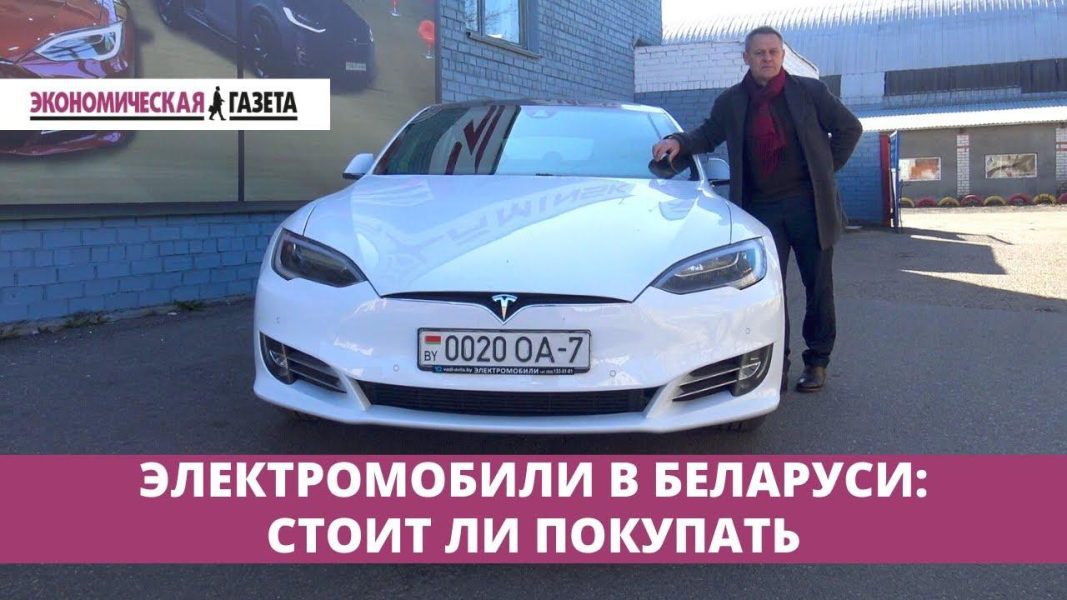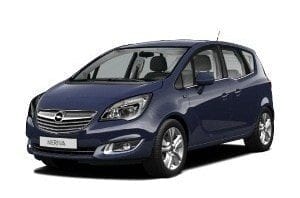
Should you buy an electric car?
Content
- Businesses
- Low operating costs
- Low tax expenses
- Better for our health
- Better for the planet
- They are well managed
- they are practical
- More EV guides
- Cons
- They cost more to buy.
- They cost more to insure
- You will need to carefully plan your trips
- The charging network is still developing
- They can take a long time to charge.
- Home charging is not available to everyone
More people are switching to electric vehicles as more models with improved technology and extended range become available. the end of sales of new gasoline and diesel vehicles is planned in 2030. The number of used electric vehicles on the market is also growing as owners of older models switch to new ones.
While an electric car will be great for many people, it's still worth considering how it might suit your particular lifestyle and driving habits. To help you decide whether you should plug in or fill up, here's our guide to the pros and cons of owning an electric car.
Businesses
Low operating costs
In general, any electric car can cost less than an equivalent petrol or diesel car. The main daily expenses are related to recharging the battery, which is most cost-effective if done at home.
You pay for household electricity by kilowatt-hours (kWh). Exactly how much this costs depends on the tariff you pay your electricity supplier. You should be able to easily find out your cost per kWh and multiply that by the battery capacity of an electric vehicle (also listed in kWh) to roughly figure out how much a full recharge would cost.
Keep in mind that using public charging stations usually costs more than charging at home. Costs can vary significantly between different charger vendors. Typically, you'll still pay less than it costs to fill a tank of gas or diesel, but it's worth doing a little research to find the best charger rates.
Other operating costs for electric vehicles tend to be lower. Maintenance, for example, may cost less because there are fewer moving parts to repair or replace than in a gasoline or diesel car.
If you want to know more about the cost of running an electric vehicle, click here..
Low tax expenses
Transport excise (car tax) is not levied on many electric vehicles. However, all cars sold since April 2017 that cost more than £40,000 incur an annual fee of £360 for the first five years. It's still less than you'd pay for other non-electric cars in this price range that also charge for CO2 emissions.
The tax savings for companies and company car drivers can also be huge, as company car tax rates are significantly lower. These drivers can save thousands of pounds a year compared to what they would have to with a petrol or diesel car, even if they pay a high income tax rate.
Electric vehicles also get free entry to London Ultra Low Emissions Zone and other clean air areas sold throughout the UK.
Better for our health
Electric vehicles do not produce exhaust fumes, so they help improve air quality in communities. In particular, diesel engines emit harmful particulate emissions. which can cause serious breathing problems such as asthma in people living in high traffic areas.
Better for the planet
The main factor behind the push for electric vehicles is that they do not emit carbon dioxide or various other pollutants while driving, which could help fight climate change. However, they are not completely emission-free because CO2 is generated during the production of electric vehicles and the generation of electricity to power them. However, most manufacturers, among other things, are switching to more environmentally friendly renewable energy sources in the course of production. More renewable energy is also entering the grid. There is debate about exactly how much CO2 reduction can be obtained from an electric vehicle over its lifetime, but it can be huge. You can read more about CO2 emissions from cars here..
They are well managed
Electric cars are great for getting from point A to point B because they are very quiet and pleasant to drive. They're not exactly silent, but the most you're likely to hear is the low rumble of the motors, along with the rumble of tires and wind.
Electric cars can also be fun, feeling pretty bouncy compared to petrol and diesel cars because they can give you full power the moment you step on the accelerator pedal. The fastest electric cars accelerate faster than even the most powerful gasoline cars.
they are practical
Electric vehicles are often more practical than equivalent gasoline or diesel vehicles because they don't have engines, gearboxes or exhaust gases that take up a lot of space. Without these elements, you will have more space for passengers and luggage. Some even have luggage space under the hood (sometimes called "franc" or "fruit"), as well as a traditional trunk in the back.
More EV guides
How much does it cost to operate an electric car?
Answers to the top 8 questions about electric vehicles
How to charge an electric car
Cons
They cost more to buy.
The batteries that power electric vehicles are very expensive, so even inexpensive ones can cost thousands of pounds more than an equivalent petrol or diesel car. To encourage the transition to electric vehicles, the government is offering a grant of up to £1,500 if you buy a new electric car under £32,000, which could make buying another one more convenient for you.
The price of EVs is also starting to come down as they become more popular and there are some great EVs available at the more affordable end of the market such as, MG ZS EV and Vauxhall Corsa-e.
They cost more to insure
Insurance premiums for electric vehicles tend to be higher because components such as batteries can be costly to repair or replace. However, premiums are expected to fall in the near future as component prices decline and insurers better understand the long-term risks and costs associated with electric vehicles.
You will need to carefully plan your trips
Most electric vehicles have a range of 150 to 300 miles on a full charge, depending on which model you're considering. That's enough to cover most people's needs for a week or two between battery charges, but you may need to go further at some point. On these trips, you'll need to schedule stops at public charging stations and set aside extra time—perhaps a couple of hours—to recharge your battery. Also note that when driving on highways at higher speeds, battery power is consumed faster.
Helpfully, many EVs with built-in satellite navigation will route between the best public charging stations, though it's always a good idea to have a backup plan in case a charger isn't available.
You can read more about how to increase the range of an electric car here..
The charging network is still developing
The network of public charging stations in the UK is expanding at a significant pace, but it is concentrated on main roads and in major cities. There are large parts of the country, including small towns and rural areas, where there are few, if any, chargers. The government has promised to install charging stations in these areas, but this will take several more years.
The reliability of the charger can sometimes be an issue. It is not uncommon to find that the charger is running at low speed or has completely failed.
There are also many companies that make chargers, and they all have their own payment methods and procedures for using the charger. Most work from the app, and only a few work from the charger itself. Some allow you to pay as you go, while others require you to pay upfront. You're likely to find yourself building up a bunch of apps and accounts if you regularly use public chargers.
They can take a long time to charge.
The faster the charging station, the less time it will take to charge an electric vehicle. A 7 kW home charger will take several hours to charge a car with a small capacity 24 kWh battery, but a 100 kWh battery can take more than a day. Use a 150 kW fast charging station and this 100 kWh battery can be charged in just half an hour. However, not all electric vehicles are compatible with the fastest chargers.
The speed of the vehicle's on-board charger, which links the charging station to the battery, is also an important factor. In the above example of a 150kW charging station/100kWh battery, charging will be faster with an 800V on-board charger than with a 200V charger.
You can read more about how to charge an electric car here..
Home charging is not available to everyone
Most electric vehicle owners charge their electric vehicles primarily at home, but not everyone has the option of installing a wall charger. You may only have street parking, the electrical system in your home may not be compatible, or you may need an expensive foundation to run your cables. If you are renting an apartment, your landlord may not allow you to install it, or it may simply not fit your budget.
The good news is that both the charging infrastructure and range of electric vehicle batteries are likely to improve significantly in the coming years, which should make home chargers less necessary. In addition, innovations such as public charging stations built into lampposts are already being rolled out, and you can expect more solutions to be created as the new gas and diesel car sales ban approaches.
If you are ready to switch to electricity, you can view quality used electric vehicles available at Cazoo and now you can get a new or used car with Kazu's subscription. Just use the search feature to find what you like and then buy, fund or subscribe to it online. You can order delivery to your door or pick up in the nearest Cazoo Customer Service Center.
We are constantly updating and expanding our range. If you're looking to buy a used car and can't find the right one today, it's easy set up promotional alerts to be the first to know when we have vehicles that suit your needs.
